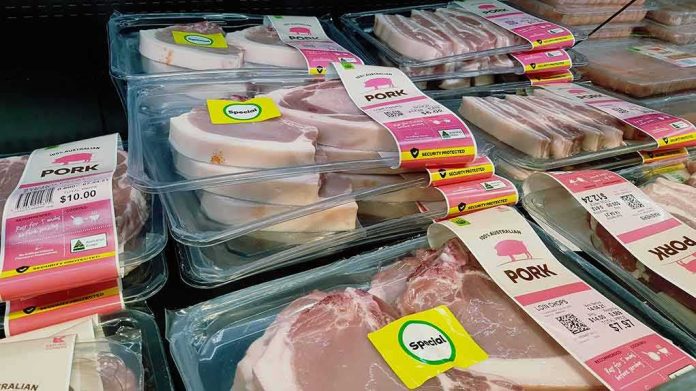
China’s growing grip on America’s food supply signals a looming threat to our economic security and traditional way of life, raising urgent questions about foreign influence in our own backyards.
Story Highlights
- China has expanded its control over key segments of the $1.5 trillion U.S. agriculture industry, including pork and processed meats.
- Experts warn this foreign involvement risks American food independence and threatens the livelihoods of U.S. farmers and ranchers.
- Conservative lawmakers and industry leaders are calling for decisive action to defend American agriculture from foreign adversaries.
- Continued Chinese investment could erode local economies, put national security at risk, and trigger higher prices for American families.
Chinese Investments Threaten U.S. Food Independence
American agriculture, a cornerstone of national strength and self-sufficiency, now faces an unprecedented challenge as China cements its influence across the sector. Over recent years, Chinese interests have strategically acquired U.S. agricultural assets, including major meat processing companies and farmland. Industry analysts warn that these acquisitions enable foreign entities to direct food production and distribution in ways that may not align with American priorities. Many ranchers and local producers voice concern that foreign ownership could mean lost jobs and diminished economic opportunities for American communities.
Risks to National Security and Community Stability
National security experts emphasize the dangers of allowing a geopolitical rival to control vital segments of the American food chain. Food security is a pillar of national resilience, and any disruption—intentional or accidental—could upend the stability of families and businesses across the heartland. Critics point to the vulnerabilities created when a hostile nation gains leverage over supply chains that feed millions of Americans. Growing unease among lawmakers has led to renewed calls for legislation to block adversarial investments in strategic industries, particularly those tied to the food supply.
Economic Fallout for American Farmers and Families
For hardworking farmers and ranchers, Chinese investment introduces fresh uncertainty into an already volatile market. Producers worry that foreign-controlled companies could undercut domestic competition, driving down prices paid to American growers while inflating costs for consumers at the grocery store. These trends threaten not only the bottom lines of family farms but also the broader rural economies that depend on agriculture for jobs and growth. Many industry leaders argue that allowing foreign adversaries deeper access to U.S. markets betrays the nation’s economic interests and sets a dangerous precedent for future generations.
Legislative Pushback and the Call for Action
In response to the mounting threat, conservative lawmakers have introduced measures aimed at restricting foreign purchases of American farmland and agricultural infrastructure. These proposals enjoy wide support among voters who see food independence as a core component of national sovereignty. Advocates stress that defending American agriculture is not just an economic imperative but a crucial step in safeguarding constitutional values and the nation’s future. As debates intensify in Washington, many observers agree: the time has come for bold action to keep American farms—and American food—firmly in American hands.
Sources:
China’s Hands Are in America’s Bacon, Hot Dogs. We Should Be Concerned, New Report Says.







